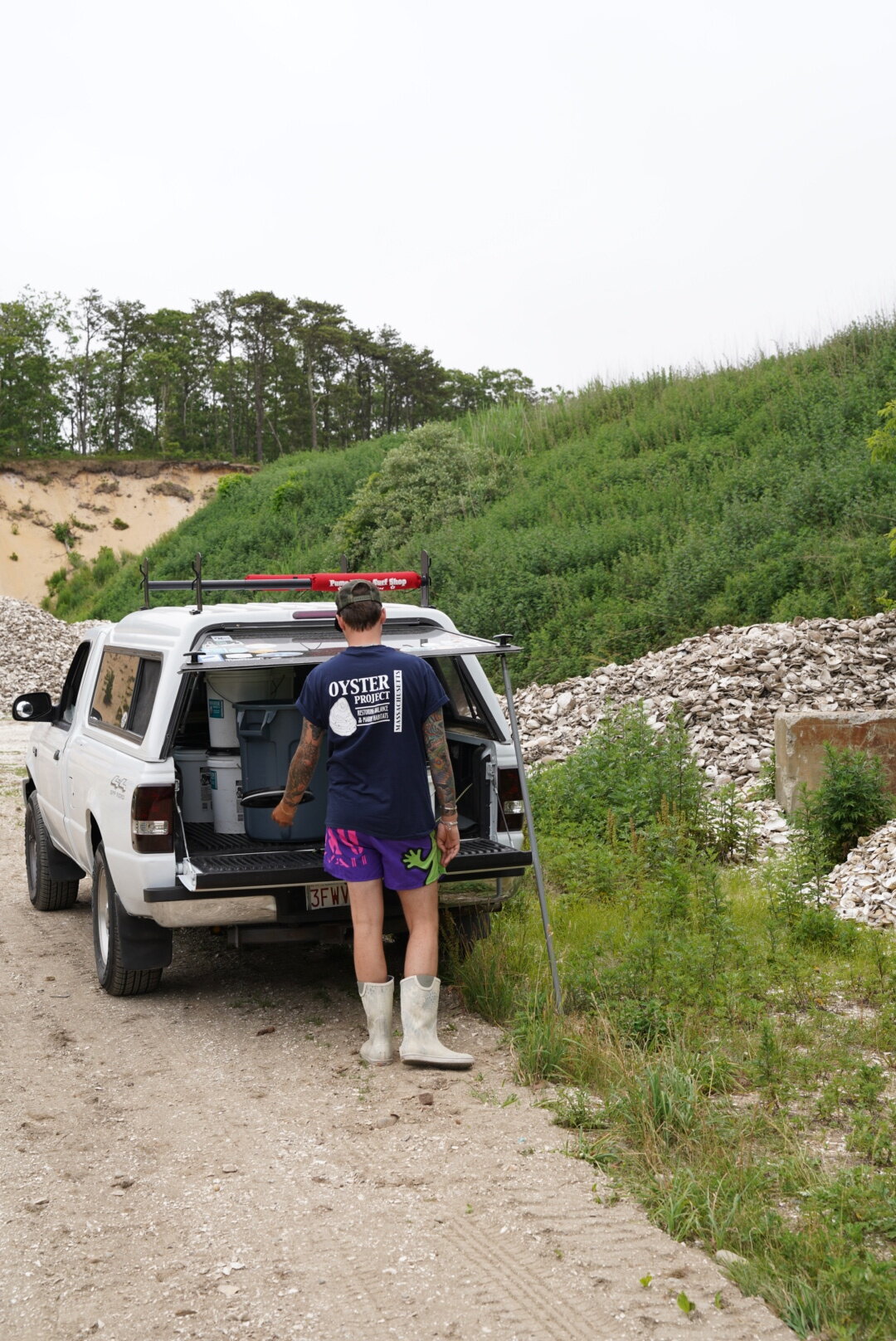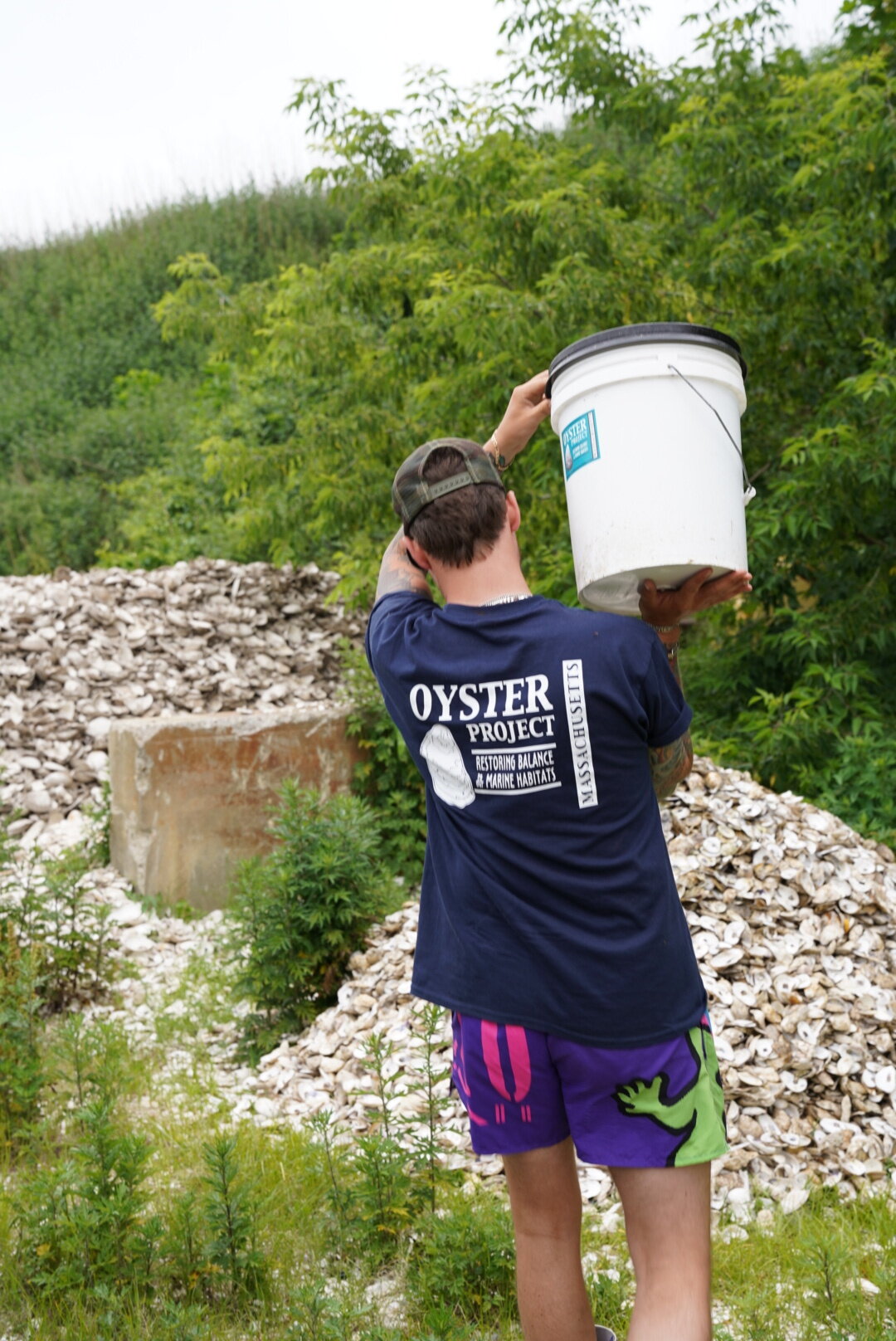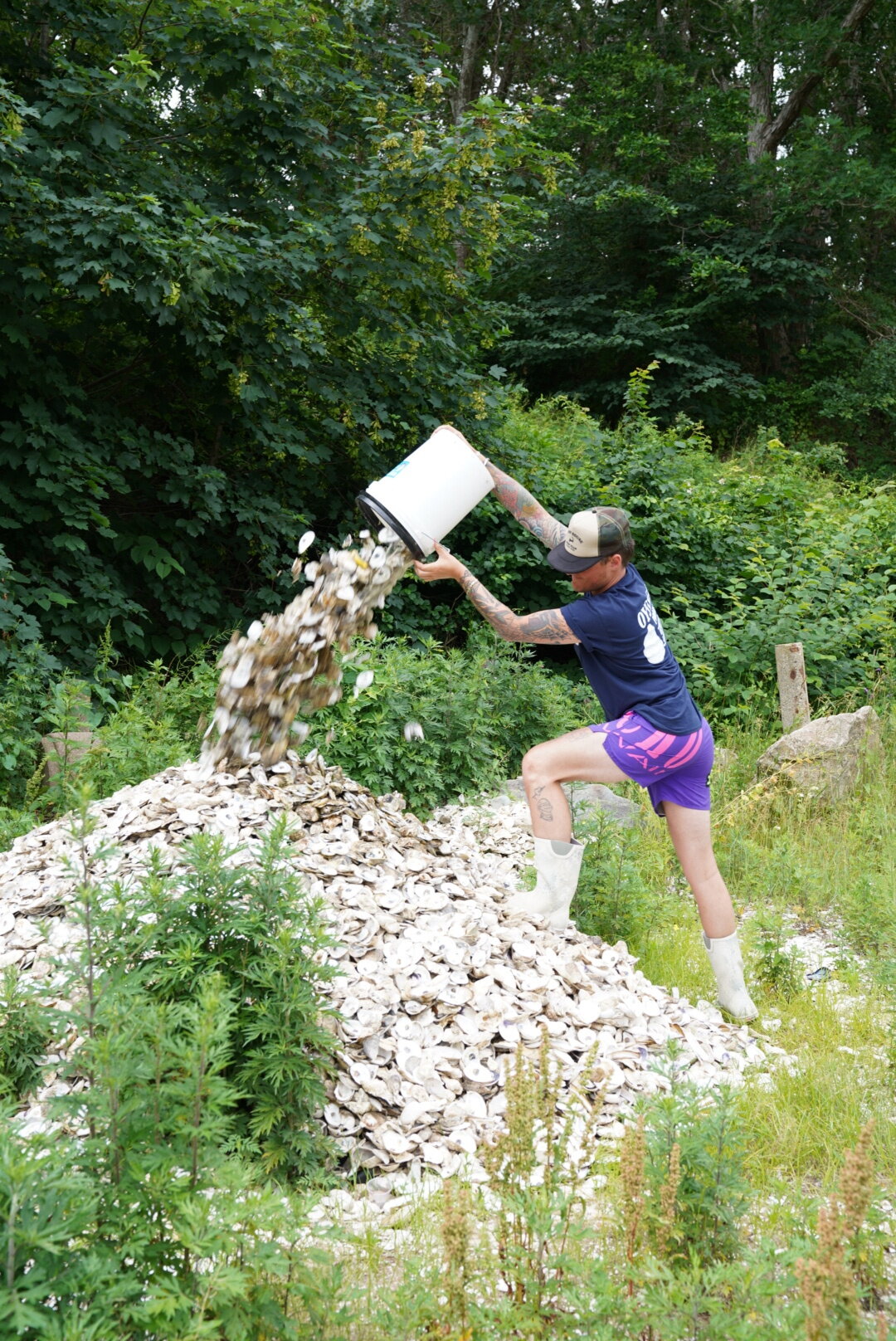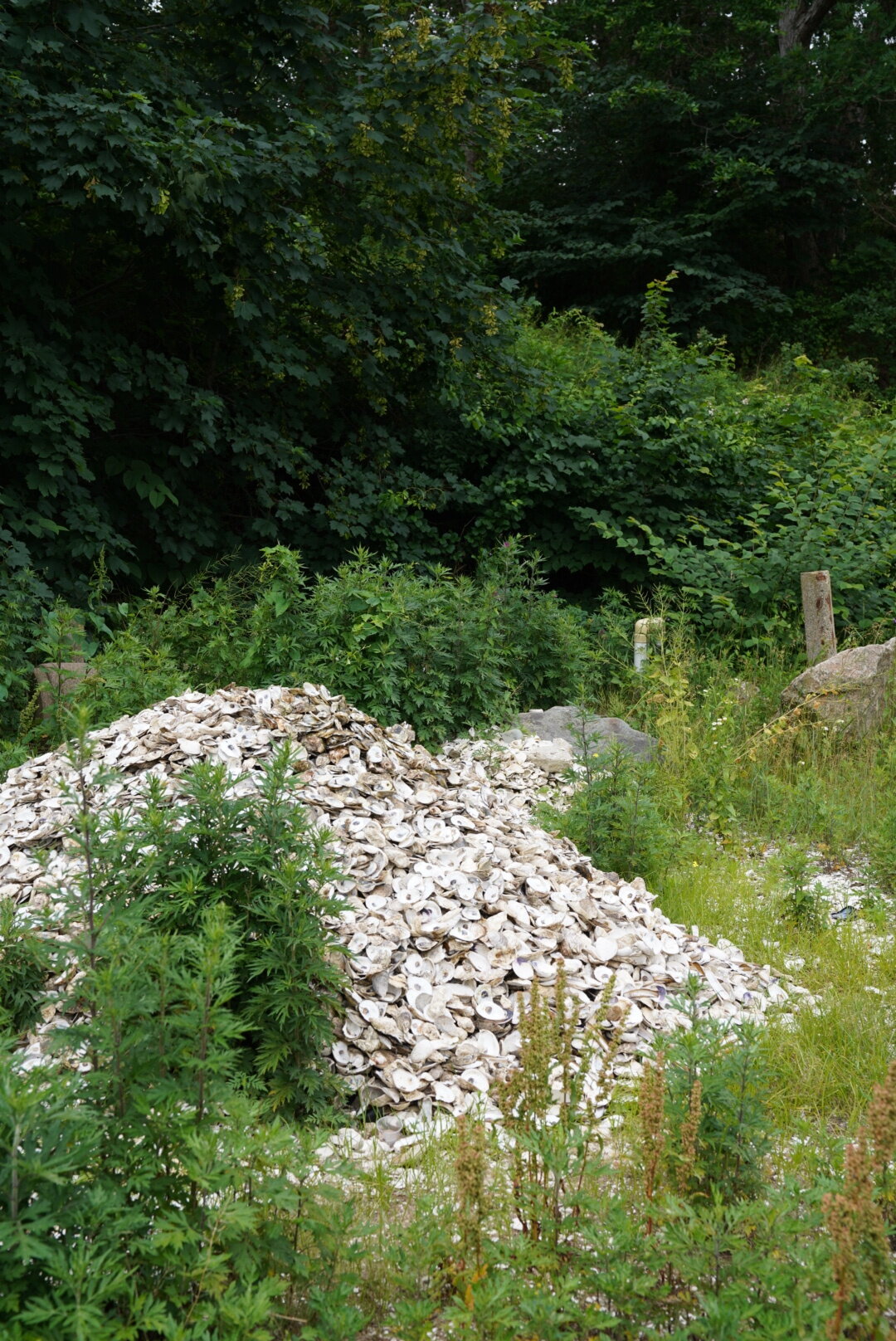The Impact of Cape Cod Shell Recycling

It’s rare to find a natural partnership that develops as seamlessly as the one we’ve created with the Massachusetts Oyster Project (MOP), a volunteer-run organization dedicated to the restoration of water cleansing oysters and native shellfish to the region’s marine estuaries.
After working together in 2020, alongside the launch of our all-new SeaThread™ Collection, we joined Shell Recycling Program Manager, Lucas Baybutt, for a day of shell recycling on Cape Cod where we collected 525 lbs. of oyster shell from local restaurants one Monday morning in June.
While so many people love a sweet or briny oyster at the bar top, few truly know the power each oyster holds to naturally regulate our inshore waterways. So the Massachusetts Oyster Project focuses on a few areas of expertise; Education, Advocacy, Restoration, and now Shell Recycling.
The focus of these conversations should not just be on dirty water, a bulk of what these shellfish filter are nutrients and algae which need to be kept to certain levels. Think about it like cutting your lawn. If too many nutrients and algae take over marine estuaries, then overgrowth occurs and nothing can live there due to acidification, oxygen levels, salinity, etc. Enter each and every oyster which has the power to naturally filter up to 50 gallons of seawater per day.
Often overlooked is the ability for oyster reefs to mitigate erosion by breaking up storm surge and providing habitat for the bottom of our food chain. These filter feeders serve our bays, estuaries, and inshore ecosystems that are the sea’s first point of human contact and the foundation for marine life within our oceans. Critical fish, crabs, planktons, and other small organisms spawn and grow in these spaces. Without them, there are no Humpback Whales, no predators like Orca or Great White Sharks, and no seafood we love like Tuna, Swordfish, Salmon, Lobster, or Squid (yes, that’s Calamari).
Oyster reefs, either naturally occurring or reseeded by human effort, allow small marine habitats and the bottom of our food chain to flourish. Here’s where Shell Recycling becomes so pivotal; we’re not just removing byproduct from the world’s landfills, but oyster larvae - better known as spat - requires other fixed objects on which to grow such as pilings, rocks, or other oyster shells. So more reefs and more oysters support healthy spawning environments for even more oysters and filter feeding shellfish that regulate the critical marine environments serving as the foundation of our oceans. And boom, with enough awareness and more shells to foster the reproduction even of more oysters we solved all the world’s problems!
But in reality, the work never stops for the Massachusetts Oyster Project, and Lucas - who is Cape Cod’s version of Mike Rowe from Dirty Jobs - collecting shell four days a week from the back of restaurants, loading it up in his white Ford Ranger, and driving it to the Wellfleet Town Transfer Station where the smell and bugs on hot summer days are enough to make the saltiest dudes on Earth feel a little squirrelly.
The shell then ages outside for a year to make sure it’s free of any pathogens before serving as locally restored reefs for more baby oysters and the circle of life continues.
So a big THANK YOU goes out to all 8 restaurants who have participated in the inaugural summer of shell recycling on Cape Cod - The Beachcomber, Pearl, Mac’s Seafood Shack, Winslow’s Tavern, Wicked Oyster, Moby Dick’s, CShore, Wellfleet Shellfisherman’s Farmers Market, and Van Rensselaer’s. Without a bit of effort from these partners and a willingness to change the course of global waste in a small way, reseeding programs would not be possible.
Next time you’re out for a cold beer and a dozen oysters at one of these fine establishments, you have the ability to change the narrative of byproduct entering landfills, producing habitat for even more oysters, and promoting healthier seas for future generations.


















